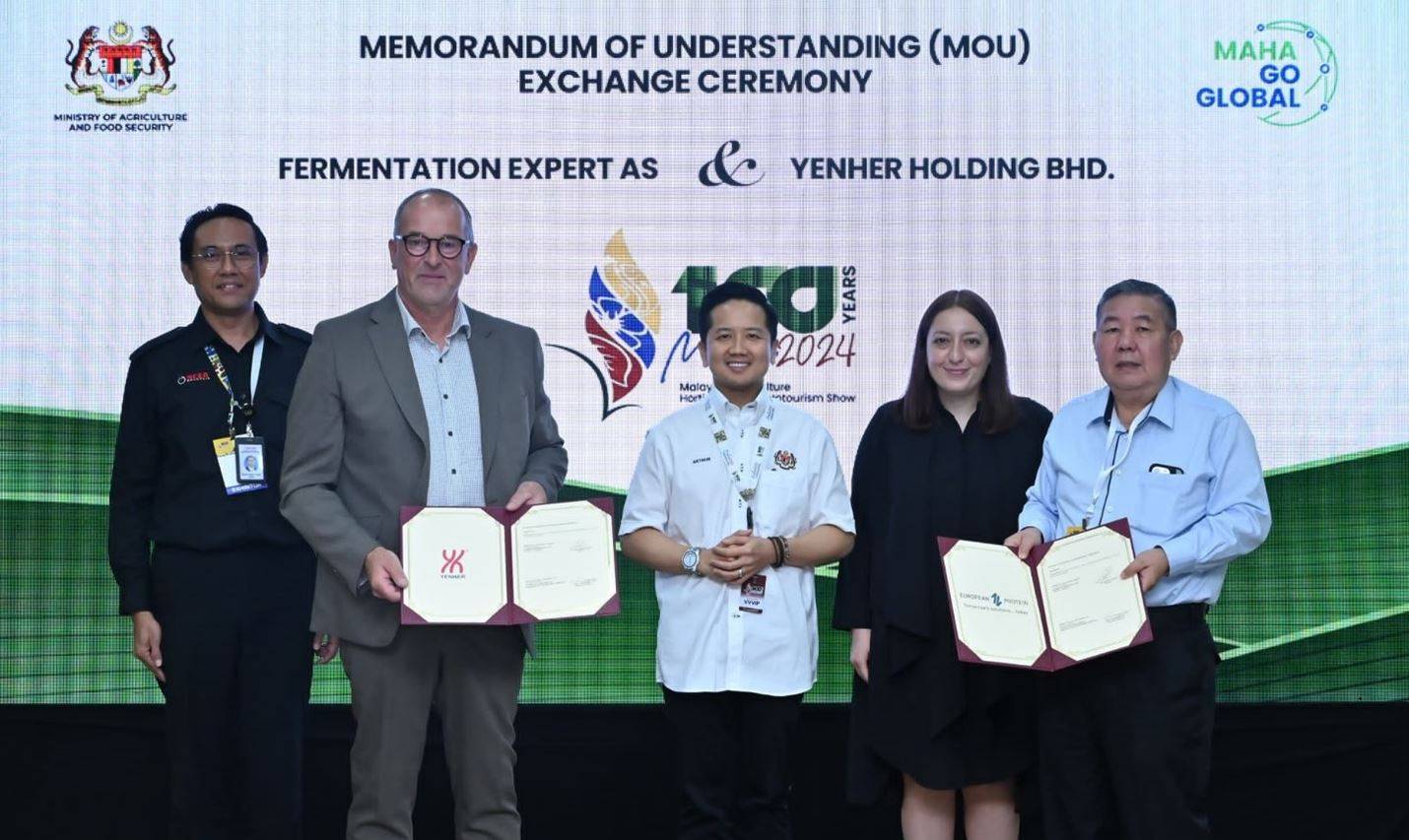The alliance, formalized at the MAHA 2024 trade fair, aims to transform plant proteins and agricultural byproducts into local, eco-friendly feed ingredients.
Strategic shift toward local protein
The venture offers a sustainable, locally sourced alternative for animal protein in Southeast Asia, a region increasingly dependent on soy imports, which are expected to reach one-third of global soy derivative imports by 2028.
Indonesia and Malaysia, dominating the global palm oil market with 83% of production (USDA, 2024), produce 8.9 million tons of low-value palm kernel meal annually. This byproduct, due to its high fiber content and low digestibility, is often exported, leaving Southeast Asia reliant on imported soy for animal feed.
The joint venture plans to use European Protein’s patented fermentation technology to convert palm kernel cakes into highly digestible feed for monogastric animals and farmed fish, aiming to reduce dependence on imported proteins. This technology will also be applied to soy, rapeseed, and seaweed, enhancing processing efficiency and minimizing environmental impacts.
Innovative technology
European Protein maintains that its proprietary solid-state lacto-fermentation, patented by its parent company Fermentationexperts, represents a “unique” industrial-scale application. It uses significantly less water and energy, cutting environmental impacts by up to 63% compared to traditional methods, according to a third-party study [1]. The process reportedly enhances the nutritional value and digestibility of feedstock while reducing antinutrients.
New fermentation plants
The joint venture will build two fermentation plants in Malaysia, expanding European Protein’s global network, which includes facilities in Denmark, Ukraine, and the US.
The first plant, with a €13.5m investment, is set to begin operations by Q4 2025 and will produce fermented proteins from rapeseed meal, soy, and seaweed. It will involve the conversion of an existing facility in Penang into GMP+-certified manufacturing plant. The second plant, for which the construction timeline is still under review, will focus on upgrading palm kernel meal into high-quality animal feed.
[1] Comparison of fermented soy with soy protein concentrate (SPC). Product Environmental Footprint calculation of Global Warming Potential (GWP) of fermented complementary feed from cradle to gate produced in bulk at European Proteins factory site in Denmark. Calculated by Bureau Veritas HSE Denmark following the LCA and PEF core rules from ISO 14025:2006 and EU COM EF Annex 1 and 2, 2023, version 1.1.

